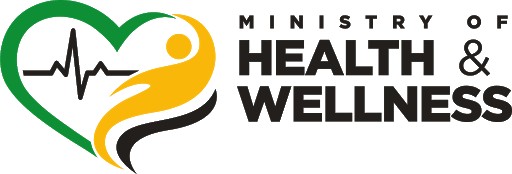Childhood Vaccines
Why Vaccinate Your Children?
It is important for children to get vaccinated when they are healthy before they are exposed to harmful germs, especially during infancy and early childhood when their immune system is underdeveloped and when they are vulnerable to harmful infections. Children ought to receive their vaccines on time, as recommended by the national immunisation schedule so that they can receive adequate protection in their early years when they need it most. Without vaccines, children are at risk for serious illnesses including measles, mumps, polio, whooping cough and flu, which could result in hospitalisation, disability or even death.
Vaccines are only given to children after a long and careful testing and review by scientists, doctors, and healthcare professionals. Common side effects of vaccines are mild and self-limiting, and include pain, redness, or tenderness at the site of injection, but this is minimal compared to the pain, discomfort, and trauma of the diseases these vaccines prevent. Serious side effects following vaccination, such as severe allergic reactions, are very rare. The disease-prevention benefits of getting vaccines are much greater than the possible side effects for almost all children.
When you get your child/children vaccinated, you are protecting yourself, also protecting your family and your community from contagious and dangerous diseases. Delaying a child’s vaccinations just increases the time that he/she is susceptible to dangerous, and potentially life-threatening diseases.
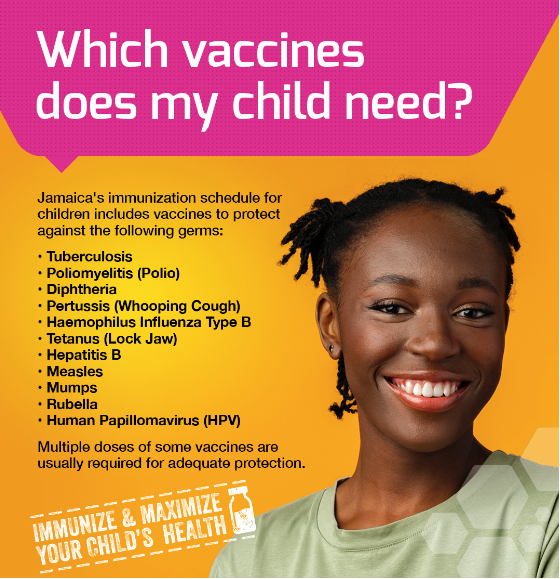
The Routine Vaccines Children Need
Routine vaccination in childhood protects against Tuberculosis, Poliomyelitis (Polio), Diphtheria, Pertussis (Whooping Cough), Haemophilus Influenzae type b, Tetanus (Lock Jaw), Hepatitis B, Measles, Mumps and Rubella. Every recommended dose of each vaccine on the schedule helps protect children from these stated dangerous vaccine-preventable diseases.
The scheduled vaccines recommended are carefully timed to provide protection to children when they are most vulnerable to diseases, and when the vaccines will produce the strongest response from the child’s immune system. It is therefore very important to follow the national schedule, keep appointments and get the right vaccines at the right time.
The HPV vaccine has been added to the national schedule to protect children against the Human Papillomavirus that causes most cases of cervical cancer, and other cancers of the genitals, head and neck.
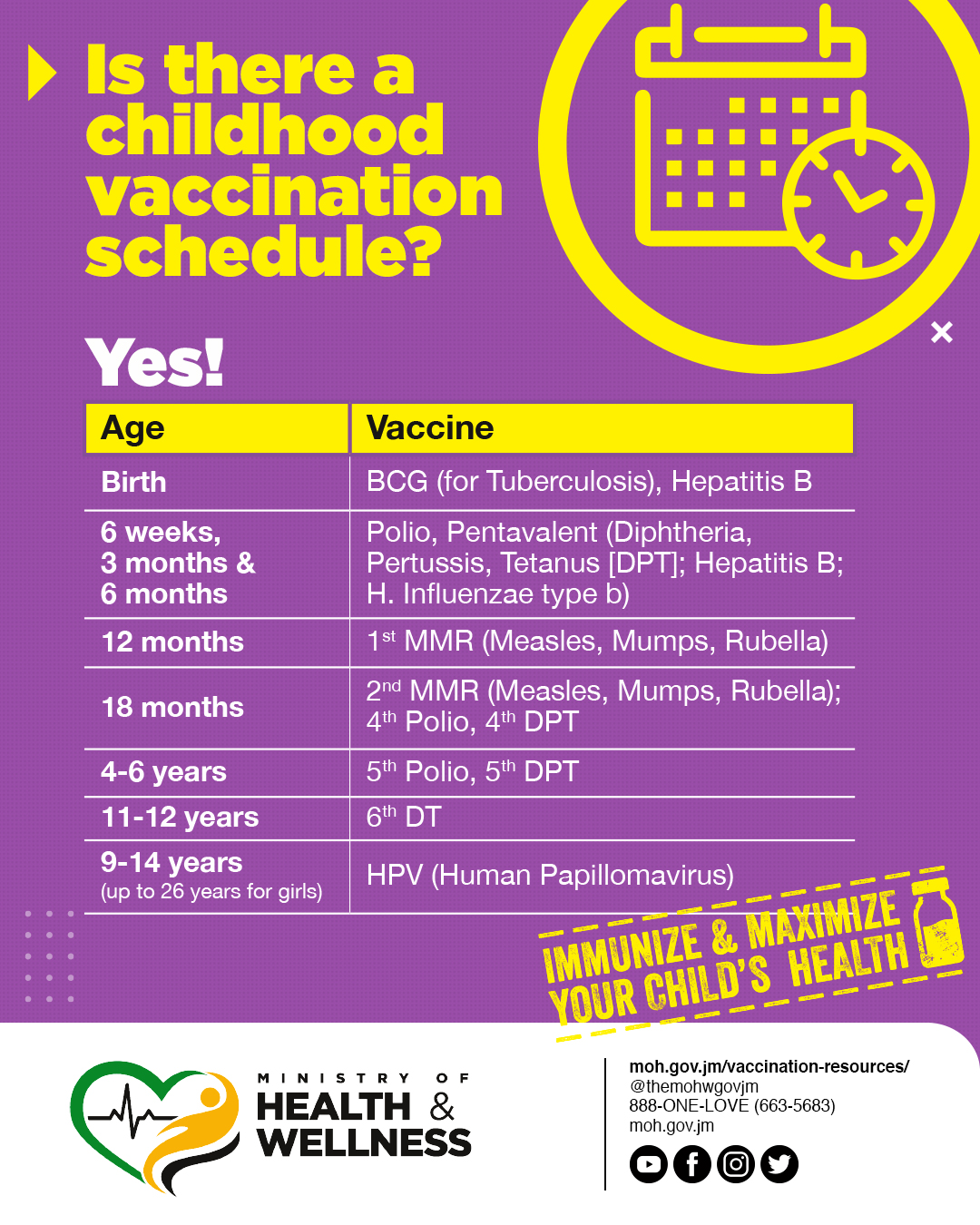
What does the National Schedule recommend?
Every recommended dose of each vaccine on the schedule helps protect your child from these dangerous vaccine-preventable diseases.
N.B. Remember: Delaying a child’s vaccinations just increases the time that he/she is susceptible to dangerous, and potentially life-threatening diseases.
How long does immunity last after getting a vaccine?
Most childhood vaccinations offer life-long immunity if doses are given according to the national immunization schedule. Some vaccines like the Influenza vaccine are given annually, just before the flu season begins, based on the circulating strain of the influenza virus.
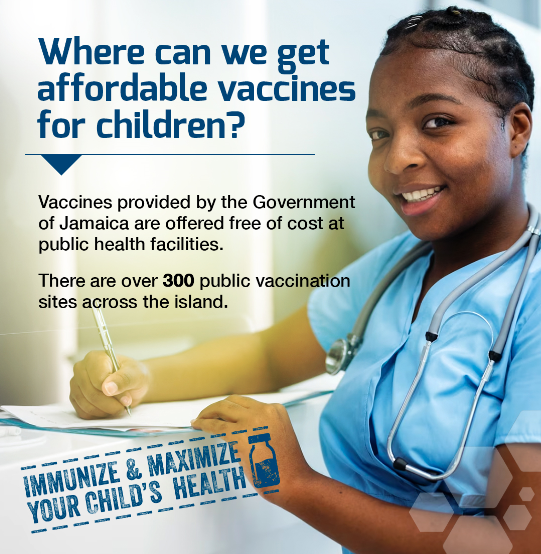
Where do you go to have your children vaccinated?
All public health centres are designated as vaccination sites; some paediatricians and family practitioners in the private sector also offer routine vaccination services and are invited to participate in the vaccination programme through their local health department.
Vaccines provided by the Government of Jamaica are offered free of cost at public health centres and hospitals. There are over 300 public vaccination sites across the island. (List of Sites)
The MOHW sets, monitors and coordinates the policies and programmes that govern our national Expanded Programme on Immunization which was established in September 1977. The Regional Health Authorities and Parish Health Departments operate the immunization services through the public health facilities across the island.
